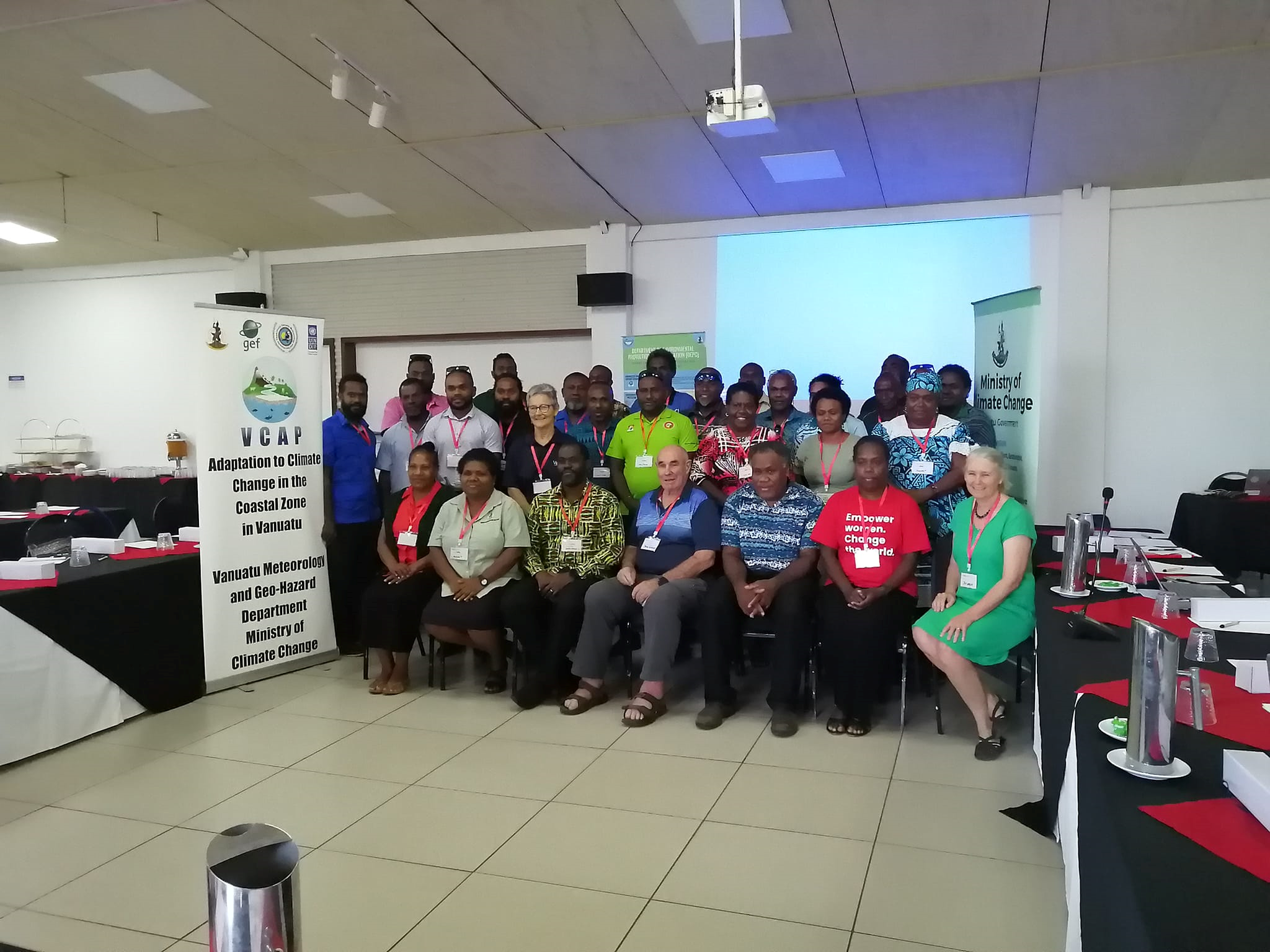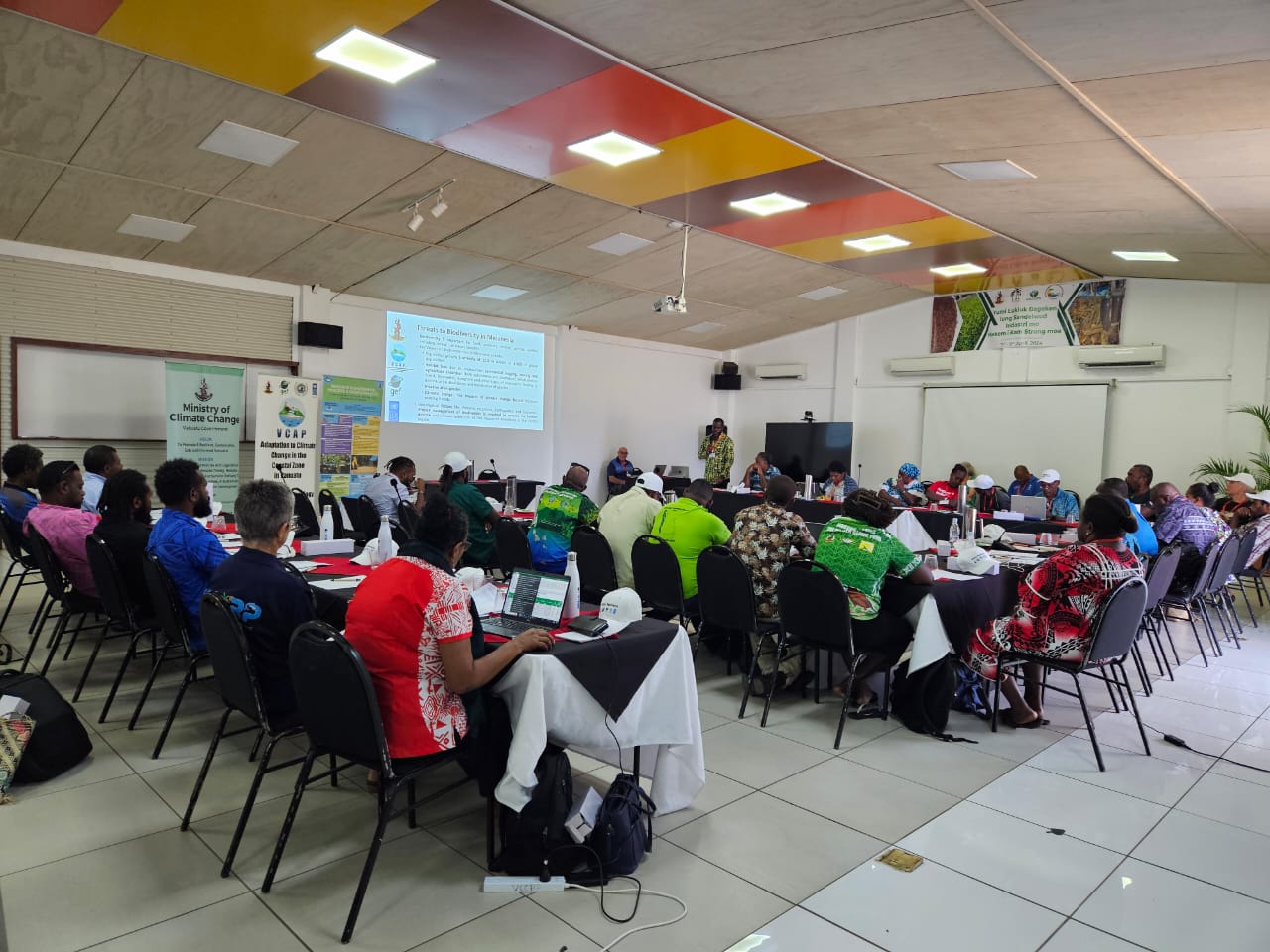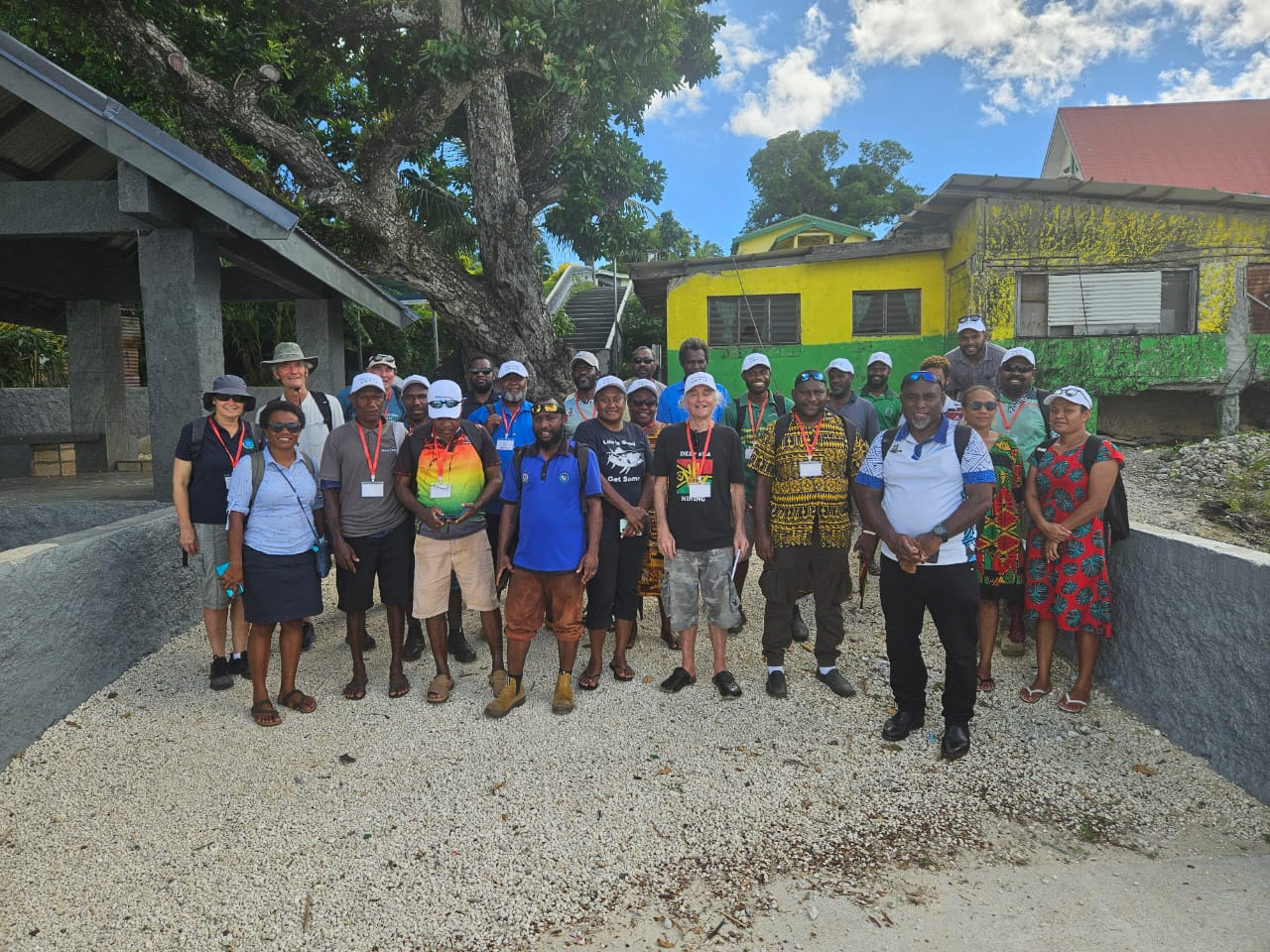Lessons from a Community Conservation Area Planning Workshop in Vanuatu
Empowering communities through integrating climate change adaptation and biodiversity conservation approaches
April 14, 2024

Participants following the VCAP II workshop.
A five-day workshop focusing on Community Conservation Areas (CCA) has been held in Vanuatu to chart a path forward regarding implementation of the Adaptation to Climate Change in the Coastal Zones of Vanuatu – Phase II project (V-CAP II).
The project is supported by the Global Environment Facility, the United Nations Development Programme and the Government of Vanuatu, with implementation being carried out by the Ministry of Climate Change in collaboration with the Department of Environment Protection and Conservation, and the Vanuatu Meteorology and Geohazards Department.
V-CAP II aims to improve the resilience of vulnerable areas and communities in Vanuatu to the impacts of climate change through the conservation of biodiversity and natural ecosystems, and the implementation of integrated approaches in order to sustain livelihoods, food production. These efforts will ensure biodiversity conservation and reduce land degradation by building on the lessons learned from the first phase project. The project, which runs through May 2028, is being implemented in all six provinces of Vanuatu: Torba, Sanma, Malampa, Penama, Shefa, and Tafea.
CCAs are protected areas that are managed and conserved by local communities. These areas are typically established to protect biodiversity, maintain ecosystem services, and promote sustainable resource management. CCAs are often established on land or waters traditionally owned or used by communities, and they play a crucial role in conserving biodiversity and promoting community development. CCAs are the most viable means for establishing protected areas in Vanuatu and are important tools for conservation and sustainable development, as they empower local communities to actively participate in and benefit from conservation efforts.

The CCA planning workshop fostered collaboration between government, NGOs, and local communities.
Key features of CCAs include:
- Community management: CCAs are managed and governed by local communities, often in collaboration with government agencies, NGOs, or other stakeholders. This community-led approach ensures that conservation efforts are aligned with local priorities and practices.
- Biodiversity conservation: CCAs are established to protect and conserve biodiversity, including ecosystems, species, and genetic diversity. By conserving these natural resources, CCAs help maintain ecological balance and support the overall health of the environment.
- Sustainable resource use: CCAs promote sustainable use of natural resources, such as forests, fisheries, and water resources. This includes practices that ensure resources are used in a way that meets the needs of present and future generations.
- Cultural and social benefits: CCAs often have cultural and social significance for local communities, as they may be linked to traditional practices, beliefs, and livelihoods. CCAs can help preserve cultural heritage and strengthen community cohesion.
- Economic opportunities: CCAs can provide economic benefits to local communities through ecotourism, sustainable agriculture, and other income-generating activities. This can help improve livelihoods and reduce dependence on unsustainable resource extraction.
Workshop objectives
The five-day workshop commenced on 8 April with the following objectives:
- Enable participants to gain skills needed during implementation of the V-CAP II project as well as ongoing work as part of their everyday activities by applying CCA methodologies based on the Conservation Standards.
- Enable participants to learn how to be more effective during the implementation of V-CAP II project activities and interventions by applying globally and locally accepted methods for the prioritization of conservation actions, and adaptive project planning and management.
- Expand networks by interacting with other workshop participants and acquiring new approaches and learning from their projects.
Participant’s demographics
A diverse group of over 40 participants attended the workshop. Government representatives included officials from key departments like Climate Change, Environment Protection and Conservation, Forests, and Fisheries. Local Authorities staff from all six provinces and selected CCA sites were also present. The NGO sector was well-represented by organizations such as Wan Smol Bag, Vanuatu Cultural Centre Land Desk, and Live and Learn. Additionally, the workshop benefitted from the expertise of staff from the VCAP II project alongside international facilitators.

Participants during their field visit to Efira.
Key lessons from the workshop
The CCA planning workshop fostered collaboration between government, NGOs, and local communities. Participants gained valuable skills in developing Community Conservation Area plans, integrating biodiversity and climate change goals, and leveraging indigenous knowledge and technology. The workshop also emphasized gender equity, children's involvement, and innovative practices for long-term project success.
Impact and future plans
- The CCA training workshop enhanced participants knowledge and skills, which are useful in not only strengthening existing CCAs in the project sites but also for new CCA sites.
- It is expected that the CCA workbook will be revised, summarized further and translated into Bislama and then used to facilitate the process of strengthening existing and formulating new CCAs in the project sites.
- The knowledge and skills gained during the CCA planning workshop shall help the project team in conducting free prior informed consent during subsequent CCA planning activities at the various project sites.
- Knowledge and skills from the CCA planning workshop will help to strengthen women empowerment and social inclusion during implementation of the project
- The VCAP II project will leverage on and build on already existing innovations such as the Kastom Forest initiative among others to enhance ownership, sustainability and impact of its CCA activities
- The VCAP II project plans to utilize the newly recruited GIS Specialist to support use of digital technologies such as Google earth, Lidar/satellite, and remote sensing.
The CCA Planning workshop successfully achieved its objectives and highlighted key requirements for effective community conservation area planning in Vanuatu as well as the importance of biodiversity conservation and climate change adaptation in Vanuatu.
Contacts:
Jackson Tambe Vire, Project Manager, Adaptation to Climate Change in the Coastal Zone of Vanuatu – Phase II, Department of Climate Change, Ministry of Climate Change Email: jackson.tambe.vire@undp.org
Daniel Omodo McMondo, International Technical Specialist/ Chief Technical Advisor, V-CAP II Project. Email: daniel.omodo@undp.org

 Locations
Locations



